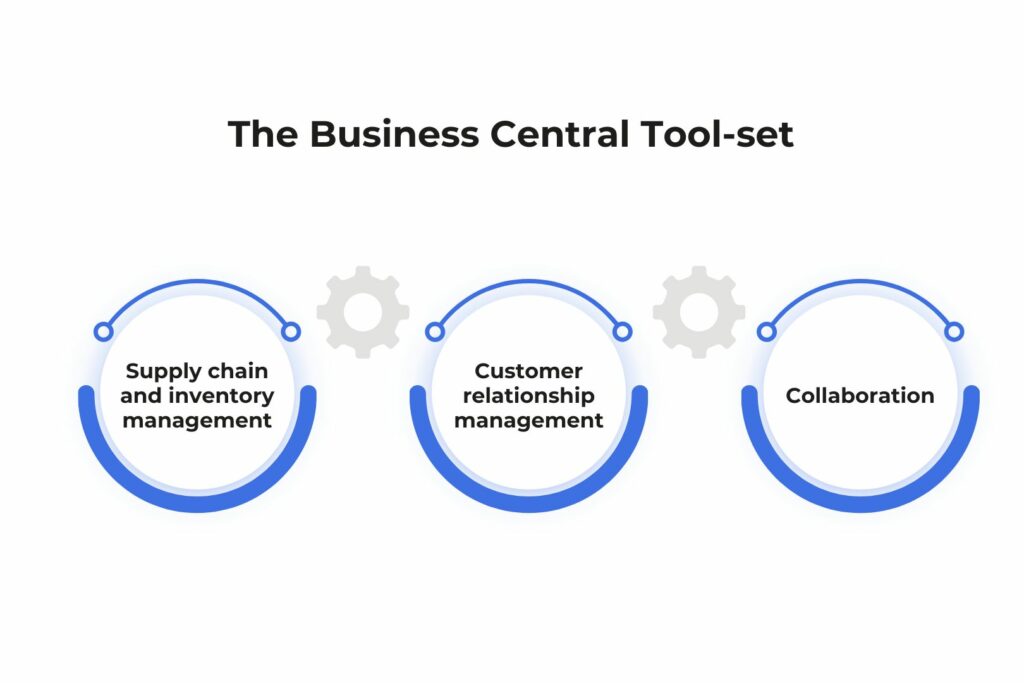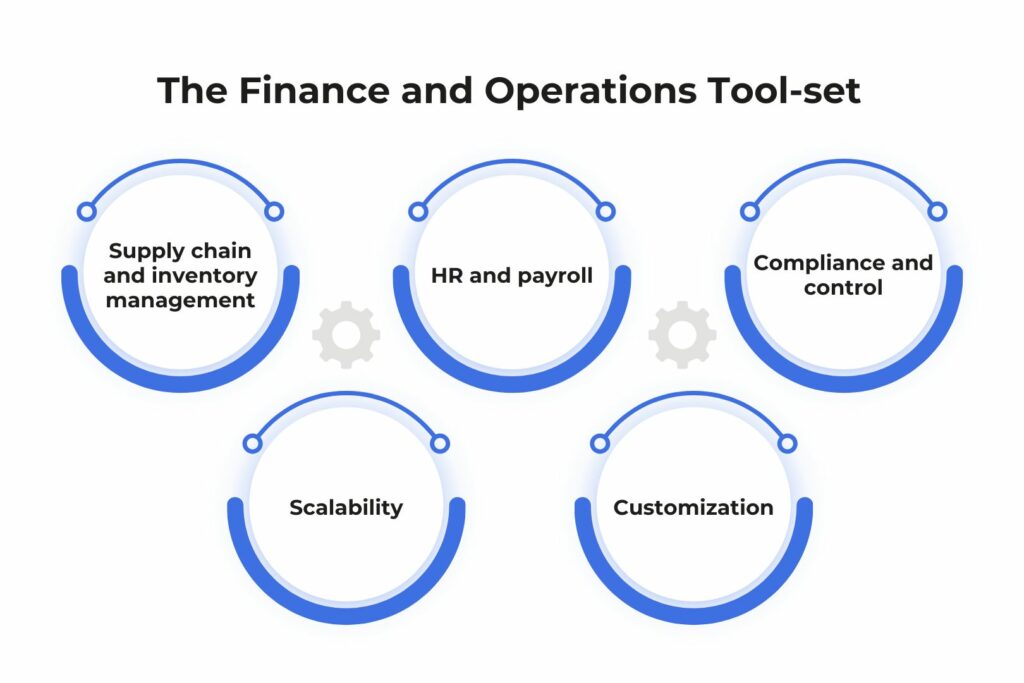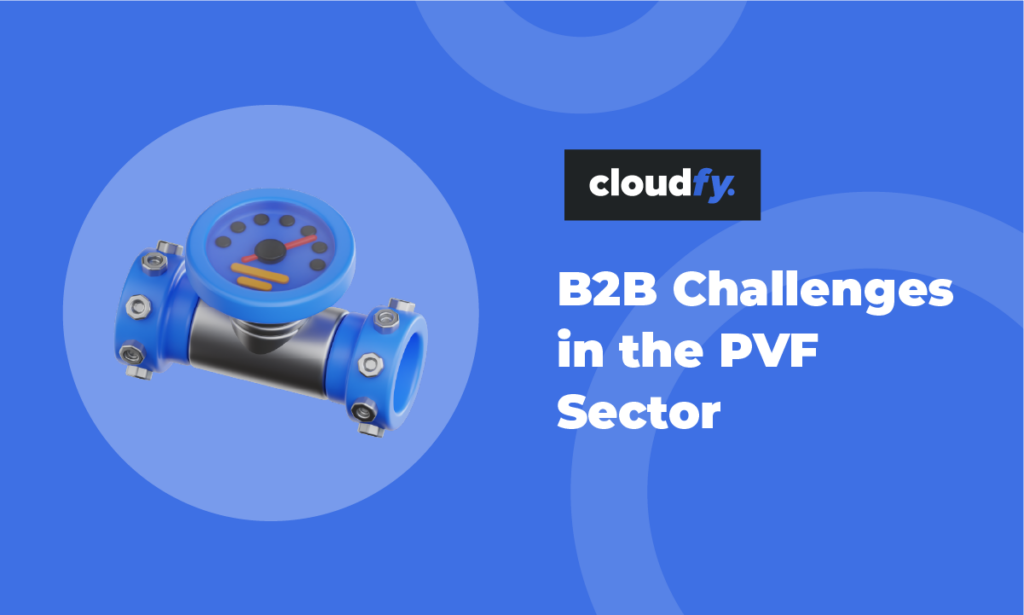Your choice of an enterprise resource planning (ERP) system is business critical. The right ERP system streamlines operations, boosts efficiency, and empowers organizations to make data-driven decisions. However, the wrong system can add complexity, disrupt operations and ultimately affect customer service and sales.
Microsoft Dynamics 365 is an ERP powerhouse. It provides a set of intelligent business applications designed to help run your business operations using predictive artificial intelligence (AI).
It includes Dynamics 365 Business Central (BC) and Dynamics 365 Finance and Operations (F&O), also known as Finance and Supply Chain Management (FSCM). They meet distinct requirements for different types of businesses. There are cloud-based, on-premises and hybrid options to suit your needs and IT strategy. How do you decide which is right for your business?
Table of Contents

Seamless purchasing
Microsoft Dynamics 365 ERP and business to business (B2B) ecommerce integration streamlines your business operations. Cloudfy is a B2B ecommerce platform designed for complex sales with pre-built integrations for Business Central and Finance and Operations.
Cloudfy is a certified Microsoft Cloud Solution Provider, so you know everything will work seamlessly. You can use customer data held in your ERP system to improve their online purchasing experiences. Your clients can see product catalogs, inventory counts, custom pricing, order histories, and invoices updated in real time.
Online self-service ordering, payments, and account management improve customer retention and reduce administration costs.
You can benefit from:
- improved product images, diagrams and graphics
- attribute and category mapping
- job queue triggers
- standard and customizable workflows
- custom data fields.
The power of enterprise resource planning
Your ERP system is the hub of your business operations, integrating core functions like finance, human resources, supply chain management, and customer relationship management (CRM). It allows you to:
Be more efficient
An ERP system simplifies automation for repetitive and time-consuming manual tasks. This minimizes errors and speeds up routine processes to reduce your costs and improve productivity.
Make informed decisions
Effective ERP implementation gives you reliable information and analysis about all your business operations in near real time. Fast access to data and powerful reporting tools help you make better decisions.
Respond quickly
You can scale and adapt your ERP system in response to changing market conditions and business growth. You’ll improve organizational agility so you can gain a competitive advantage.
Build better customer relationships
When your processes are fast, accurate and reliable, you can tailor your services to meet your customer’s needs. When customers login to their accounts they can see their contracted pricing and order histories to simplify their buying journeys. You can send specific reminders, make recommendations and run loyalty programs.
Improve compliance
You can include your industry-specific regulations and requirements in your ERP to help minimize non-compliance risks and penalties.
Microsoft Dynamics 365 Business Central vs Finance and Operations
Microsoft Dynamics 365 Business Central is a powerful tool for fast-growing small and medium-sized enterprises (SMEs).
Business Central pricing takes account of realistic SME budgets. Users can be categorized based on their roles and access levels for cost-effective licensing.
Also, recognizing that smaller operations often don’t have large-scale IT teams, it offers a user-friendly interface and simplified setup. You’ll have access to a single integrated system to manage your finances, inventory, sales, and customer relationships. In addition, Business Central can scale and evolve to meet your needs as your operations expand.

The Business Central suite of tools includes:
Finance
Robust financial management features including general ledger, accounts receivable and payable, budgeting, and financial reporting.
You can manage stock levels, streamline order processing, and optimize your whole supply chain.
Customer relationship management
Business Central includes CRM features to help manage leads, opportunities, and customer interactions.
Collaboration
If your organization already uses Microsoft applications you’ll find the interfaces familiar and you can easily combine them with Business Central.
In contrast, Finance and Operations is designed for larger enterprises with complex operational requirements. It provides features and functions to help you manage complex finances, supply chain logistics and human resources requirements. It’s designed to handle complex transactions and compliance requirements.
Licensing is based on users and the specific functions they need. Some modules and functions might require extra licensing fees such as advanced analytics or industry-specific capabilities.

The Finance and Operations toolset includes:
Supply chain and inventory management
In addition to the standard requirements Finance and Operations includes tools for demand forecasting, procurement, inventory management and logistics optimization.
HR and payroll
You can streamline workforce management with payroll processing, benefits administration and talent management.
Compliance and control
If your industry sector is heavily regulated you can simplify management of your legal and quality control requirements. Finance and Operations can adapt to your industry’s needs to provide a tailored solution.
Scalability
Finance and Operations is designed for scalability to meet the needs of organizations with expansion plans.
Customization
Finance and Operations connects with other Microsoft applications. You can build and deploy your own solutions with artificial intelligence (AI) models for vision, speech, language, and decision-making with Microsoft Azure. You can develop your business intelligence with Power BI and use all the familiar Microsoft 365 tools. You can tailor specific processes and workflows to suit your business operations.

Which option suits your business?
The key differences are in how Business Central and Finance and Operations meet your requirements for scalability and complexity.
Depending on your needs, you might require more add-ons and extensions developed by independent software vendors (ISVs) with Business Central. You will find a tipping point where its scalability and customization limitations mean it’s not the solution for you.
Finance and Operations is more flexible for customization and can handle unique workflows, complex processes and high volume traffic. It’s suitable for organizations with diverse business infrastructures.
Both Business Central and Finance and Operations can meet standard ERP requirements. Your choice will depend on the complexity of your business and your plans for growth.
Find out how integrating Cloudfy with Business Central or Finance and Operations can scale as you grow. Book a free demonstration today.
Frequently Asked Questions
Microsoft Dynamics 365 Business Central is an enterprise (ERP) system designed for the needs of SMEs. Its pricing structure and easy set-up mean it can be implemented efficiently to streamline operations. You can integrate with other Microsoft applications and it’s also scalable, so it can grow with your business.
Microsoft Dynamics 365 Finance and Operations is a scalable, customizable and agile solution for large enterprises. Also known as Finance and Supply Chain Management, it can integrate with other powerful Microsoft and third-party applications.
Your implementation schedule will vary depending on the complexity of your business requirements and how much customization and integration you need. For smaller, less complex operations Business Central is faster and easier to set up. Finance and Operations is typically used for more complex requirements which will take more time.
You can tailor your workflows to meet your specific industry requirements with both options. Finance and Operations includes tools to support regulatory and compliance requirements like audit trails, compliance reporting, and data governance tools.






